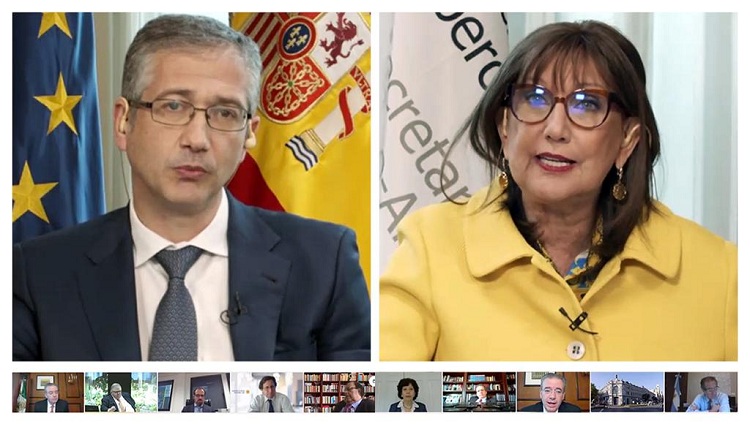The Diplomat
The governors of the Ibero-American central banks praised the response of the international financial institutions after the outbreak of the pandemic but called for greater support to middle-income countries after the economic crisis generated by the COVID-19.
Last Monday, the First Ibero-American Meeting of Central Banks was held, jointly organized by the Bank of Spain and the Ibero-American General Secretariat (SEGIB) as part of the events prior to the XXVII Ibero-American Summit of Heads of State and Government, which will take place in Andorra on April 21. The meeting, held by videoconference, was chaired by the Ibero-American Secretary General, Rebeca Grynspan, and the Governor of the Bank of Spain, Pablo Hernández de Cos, and was attended by numerous governors of central banks of Ibero-American economies and senior representatives of various international institutions, such as the Bank for International Settlements and the World Bank, among others.
“This first meeting of central bank governors from the 22 countries of the region comes in an environment marked by the COVID-19 pandemic, in which cooperation and exchange of experiences and information among Ibero-American institutions are more necessary than ever to provide a better response to the health, social and economic crisis”, SEGIB stressed in a press release.
During the meeting, two highly relevant issues were addressed: on the one hand, the monetary policy responses to the COVID-19 crisis and the challenges faced by central banks to maintain favorable financial conditions for recovery, and on the other, the role played by international financial institutions in trying to limit the impact of the pandemic.
Regarding the first issue, the participants in the debate agreed that, in the current context of high uncertainty and incipient recovery, monetary policy must continue to facilitate the maintenance of favorable financial conditions that contribute to consolidating the exit from the crisis. They also warned of the need for central banks, both in advanced and emerging economies, to remain alert to the possible emergence of tensions in financial markets that could lead to a deterioration in financing conditions, given the current situation of a notable increase in public and private debt.
In addition, and in relation to the second major theme of the debate, participants made a positive assessment of the response of the international financial institutions following the outbreak of the pandemic, mainly through the provision of emergency financing and debt relief initiatives for low-income economies. However, they insisted on the need to deepen support for middle-income countries which, “in many cases, have experienced major setbacks in terms of poverty and inequality during this crisis and have to cope with the recession with very limited space in their national policies”.







